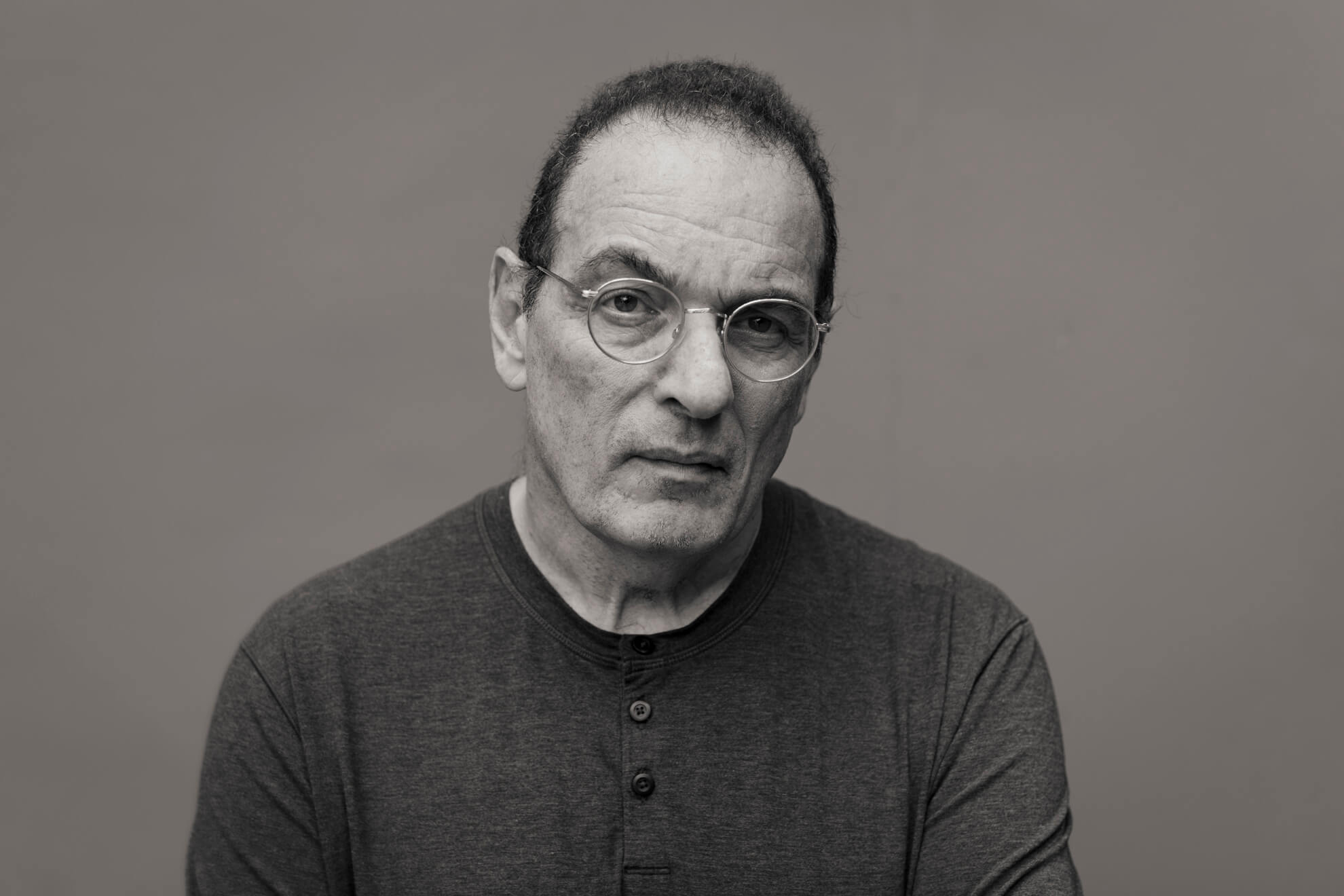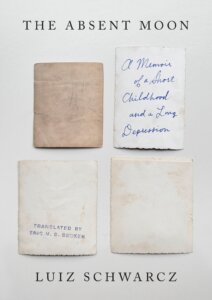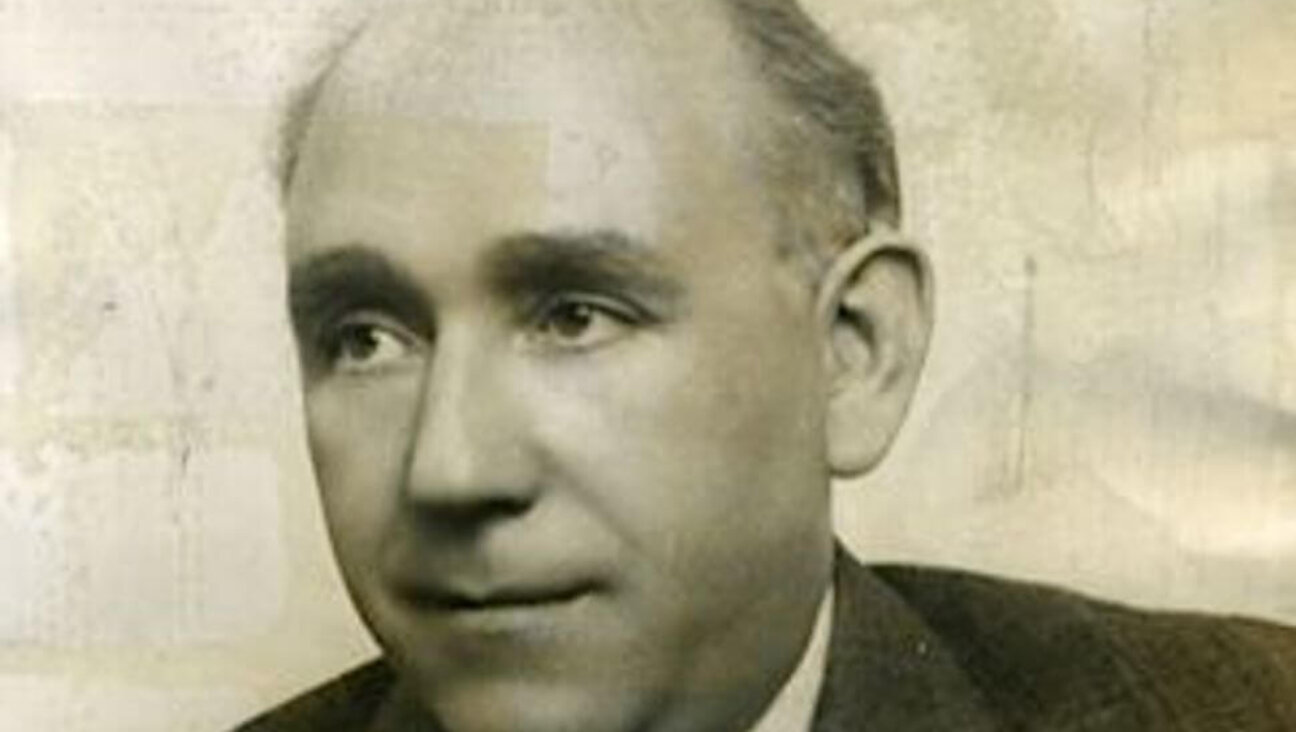A family and a writer plagued by the aftershocks of Holocaust trauma
in ‘The Absent Moon,’ Luiz Schwarcz writes of survivor guilt and his own depression

Brazilian publisher Luiz Schwarcz’s latest book is his memoir, The Absent Moon. Photo by Renato Parada
The Absent Moon: A Memoir of a Short Childhood and a Long Depression
By Luiz Schwarcz; translated from the Portuguese by Eric M.B. Becker
Penguin Press, 240 pages, $28
The depression that afflicts the Brazilian publisher Luiz Schwarcz is catastrophic and disabling, kept at bay, he tells us, only by a potent mix of medications and therapy. It also seems overdetermined, the result of both genetic factors and environmental stressors whose impacts are impossible to disentangle.
In his meandering, idiosyncratic memoir, The Absent Moon, an evocative title that summons up varieties of darkness, Schwarcz chronicles a family history scarred by Holocaust trauma, his parents’ grim marriage and the emotional burden he carried as a child tasked with bringing them joy.
“I felt caught between my father’s complaining, my mother’s doting, and declarations by both of their love for their only child,” he writes. “Twisted in one direction and then the other, I wasn’t sure I could rely on those who ought to have been my first heroes and role models in life.”
Neither, despite his relative privilege, could he rely on the Brazilian healthcare system, which botched both a hernia surgery and his mental health treatment. His depression, he says, was misdiagnosed and poorly medicated until doctors finally realized he suffered from bipolar disorder.
That malady has strong genetic roots, but is often triggered by trauma or stress, and it requires a different set of meds than depression alone. Schwarcz comes surprisingly late to lithium, often the treatment of choice for bipolar disorder (in combination with antidepressants), and pronounces it “the best mood stabilizer I’ve ever tried.”
According to its jacket copy, Schwarcz’s memoir, ably translated from the Portuguese by Eric M.B. Becker, was “a literary sensation in Brazil.” If so, that may be because of the combination of Schwarcz’s national celebrity and his unvarnished frankness. Founder of the São Paulo publishing house Companhia das Letras, Schwarcz has authored two children’s books and two short-story collections, and in 2017 received the London Book Fair Lifetime Achievement Award. Those credentials won’t mean much to the U.S. reader.

More germane and universal are Schwarcz’s mental health struggles, which incapacitated him at times and led to self-harm. He introduces the concept of “depressive totalitarianism,” an insistence that everyone around him dedicate themselves to his needs. “In this intense period,” he writes, “my attacks of guilt mingled with depressive thoughts, spurring prolonged weeping episodes in a vicious cycle that demanded endless patience on the part of my wife and children.”
Schwarcz writes with equal candor of his early sexual misadventures and various intimate family matters. He reveals that his father, André, sent him to prostitutes shortly after his bar mitzvah, an experience more upsetting than pleasurable. His mother, Mirta, endured repeated miscarriages (and one tragic stillbirth). His father raged, resorted to sex workers, and at least once escalated to domestic violence.
The generational aftershocks of Holocaust trauma still plague the family. A Hungarian Jew who found a new life in Brazil, André never overcame his particular species of survivor guilt. His father, Lajos, had either ordered or pushed him off a Nazi transport to Bergen-Belsen. At 19, he managed to escape, while Lajos ended up in the camp and died shortly after its liberation. Luiz, named for Lajos, dedicates the memoir to his grandfather.
André (whose mother and sisters survived the war) continually mourned his father. His Yom Kippur prayers were filled with tears and repentance. He suffered from insomnia and wild mood swings and underwent electroshock treatment and therapy.
By contrast, Mirta’s parents both made it from Yugoslavia to Brazil, and Schwarcz’s maternal grandparents figured importantly in his life, confiding in him and spoiling him. Unhappy with Mirta’s marriage, they “harbored a silent animosity” towards André.
Silence turns out to be one of the principal themes of the book. “Life was quiet, solitude was the norm, and underneath it was an all-consuming fear,” Schwarcz writes. His depression may have surfaced initially during his teenage years, he says, but soccer — he was a talented goalie — and involvement in the Jewish youth movement were great escapes.
Even more essential, he makes clear, has been his fortunate and lasting marriage to his childhood sweetheart, Lili. He also has leaned on his love of reading, a gift from his mother, and of music, an inheritance from his father. He collects records obsessively, perhaps a marker of his manic tendencies. He touts the benefits of psychoanalysis and exercise.
And he writes at some length of his failed, unpublished novels. The title of this memoir is lifted from one of them, a fictional recounting of his father’s life.
In The Absent Moon, as in memory, time dissolves, and past and present often merge. One instant, Schwarcz is alongside André in their synagogue. In the next, he is alone, but speaking to his long-dead father of his sorrows. These are the memoir’s most powerful moments.
“This book was built upon a long history of silences,” Schwarcz writes in an epilogue. “But the stories told here were in need of an outlet.” He shares them, he says, “in the hope that I might now go back to reading.”
The Forward is free to read, but it isn’t free to produce

I hope you appreciated this article. Before you go, I’d like to ask you to please support the Forward.
Now more than ever, American Jews need independent news they can trust, with reporting driven by truth, not ideology. We serve you, not any ideological agenda.
At a time when other newsrooms are closing or cutting back, the Forward has removed its paywall and invested additional resources to report on the ground from Israel and around the U.S. on the impact of the war, rising antisemitism and polarized discourse.
This is a great time to support independent Jewish journalism you rely on. Make a gift today!
— Rachel Fishman Feddersen, Publisher and CEO
Support our mission to tell the Jewish story fully and fairly.
Most Popular
- 1

Fast Forward Ye debuts ‘Heil Hitler’ music video that includes a sample of a Hitler speech
- 2

Opinion It looks like Israel totally underestimated Trump
- 3

Culture Is Pope Leo Jewish? Ask his distant cousins — like me
- 4

Fast Forward Student suspended for ‘F— the Jews’ video defends himself on antisemitic podcast
In Case You Missed It
-

Fast Forward For the first time since Henry VIII created the role, a Jew will helm Hebrew studies at Cambridge
-

Fast Forward Argentine Supreme Court discovers over 80 boxes of forgotten Nazi documents
-

News In Edan Alexander’s hometown in New Jersey, months of fear and anguish give way to joy and relief
-

Fast Forward What’s next for suspended student who posted ‘F— the Jews’ video? An alt-right media tour
-
Shop the Forward Store
100% of profits support our journalism
Republish This Story
Please read before republishing
We’re happy to make this story available to republish for free, unless it originated with JTA, Haaretz or another publication (as indicated on the article) and as long as you follow our guidelines.
You must comply with the following:
- Credit the Forward
- Retain our pixel
- Preserve our canonical link in Google search
- Add a noindex tag in Google search
See our full guidelines for more information, and this guide for detail about canonical URLs.
To republish, copy the HTML by clicking on the yellow button to the right; it includes our tracking pixel, all paragraph styles and hyperlinks, the author byline and credit to the Forward. It does not include images; to avoid copyright violations, you must add them manually, following our guidelines. Please email us at [email protected], subject line “republish,” with any questions or to let us know what stories you’re picking up.
















